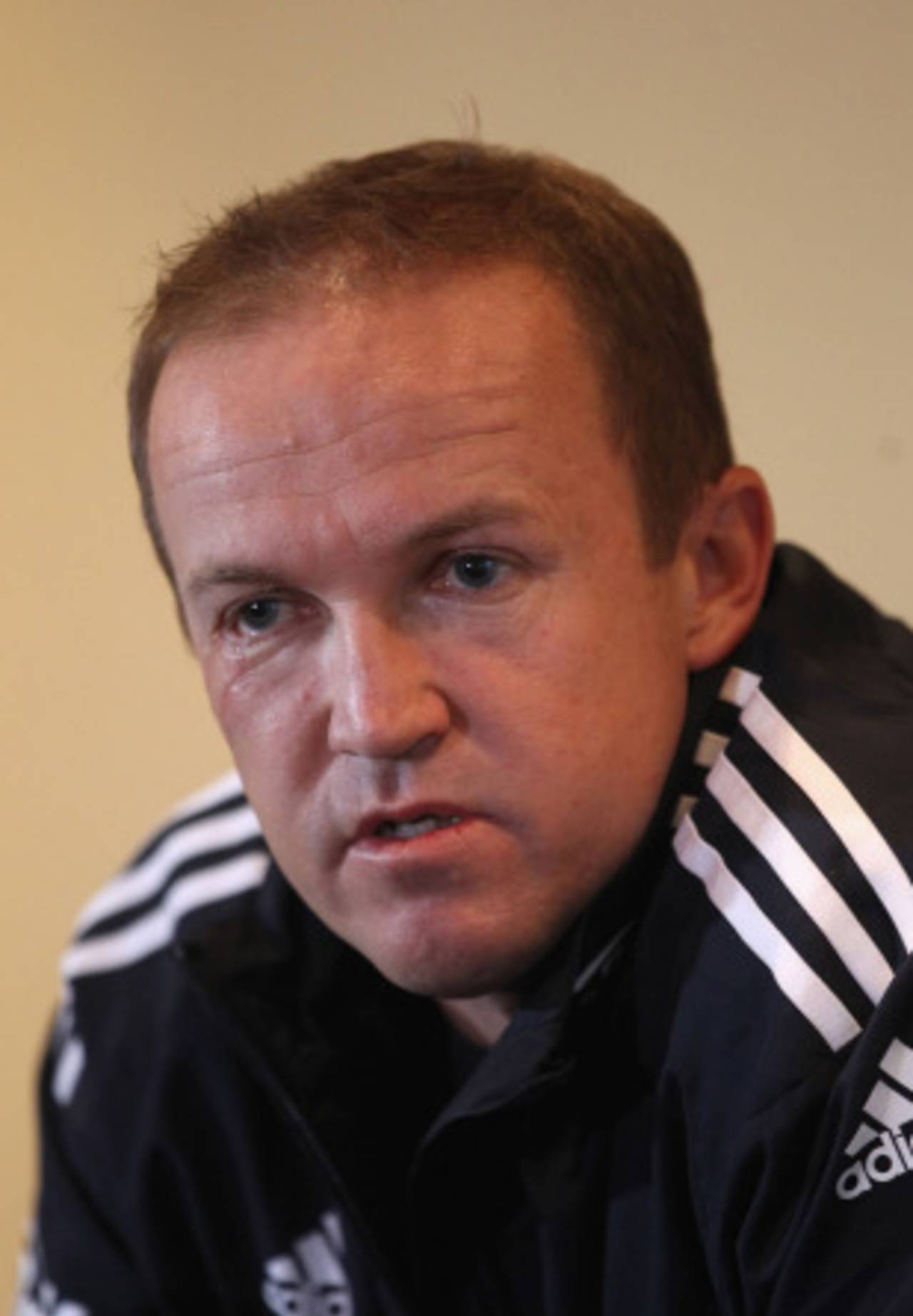The importance of coaches
The more I think about what went on in the Ashes, the more I appreciate what a brilliant job the England back-room crew did
Mike Holmans
25-Feb-2013

Andy Flower picked the right men to form an excellent support staff • Getty Images
The more I think about what went on in the Ashes, the more I appreciate what a brilliant job the England back-room crew did. It is no surprise at all that the players have gone out of their way to praise them and their contribution. Andy Flower. modestly, though quite rightly, says that the credit should go to the players because they are the ones who have to make the right decisions at the right time on the field, but the guys who prepared them for the fight clearly gave them everything they needed to do so.
Perhaps the best illustration is the way the England bowlers dealt with Ricky Ponting, Michael Clarke and Phil Hughes. Time and again, Ponting and Clarke were out to balls bowled to reach them about waist-height a foot or so outside off stump, and they received almost none of the balls directed at their bodies which both of them love to send to the on-side boundaries. Hughes, on the other hand, received almost none of the balls waist-high outside off because he would have clattered them to the fence, and was instead served a diet of body balls which tangled his non-existent defence up completely. The analysts who study the videos of the opposition clearly found the weak spots.
That encapsulates England's attention to detail in preparing for each batsman. What it further shows is the trust the bowlers have in their leadership, because none of them ever seemed tempted to stray from the plan currently in operation, whether it was plan A, B or C. They were exemplary in bowling to their fields, even when a couple of Australians had got themselves set and the temptation to try and find a magic ball to disrupt them must have been overwhelming.
Contrast this with the Australians who spent a great deal of time bowling straight balls at Jonathan Trott to work gratefully into his favoured leg side hour after hour. What on earth were they thinking, or were they thinking at all? And why did no-one tell them to do something else? Shouldn't someone in the Australian camp have known?
Speaking of Trott, how did this fairly ordinary fielder turn into a superb run-out expert, able to make a sharp one even after having batted for several hours? Flower himself gave credit for that to the fielding and fitness coaches.
Batting for several hours is something about which batting coach Graham Gooch holds very strong opinions. Alastair Cook has worked with him for a long time, and his phlegm and unstoppability came from absorbing the lessons: throughout his double-hundred, he said later, Gooch's mantra of “make it a daddy” was constantly running through his mind.
And then there is Flower himself, who runs the whole show. Part of his triumph is to have picked the right men to fill those technical coaching spots, but more lies in the lengthy preparation and planning which brought the team to a peak in late 2010. Periods of rest were prescribed for various players during the year, along with sending some away to do strength and conditioning work rather than playing international cricket. Comment at the time was mostly adverse, but is it not now apparent how sensible it was for the players concerned?
Similarly derided were the boot camps and field trips, but the extraordinary togetherness of the team has to have been built somewhere. This is a squad which clearly bonds well: I can't think of a previous England party which would have embraced the sprinkler dance so enthusiastically and unselfconsciously. Somewhat childish though that dance may be, it has been noticeable that they have been treated like adults. They have gone out to dinner in restaurants rather than huddling in the team hotel bunker, and they have talked with relish of getting the beers in after a win.
But the real masterstroke came in picking the team for the MCG Test. England had the courage to drop Steven Finn, the bowler who had taken the most wickets until then, because Flower reckoned he had shot his bolt. In came Tim Bresnan to bowl the maidens Finn had been incapable of delivering at the WACA. The contrast with the Australian selectors who thought it a good idea to select a patently unfit Doug Bollinger for Adelaide could not be starker.
It was the players who went out on the field and did the business while the coaching staff sat and watched, but that back-room crew can be justly proud that they had done everything they could to make sure that the team could perform at its best.